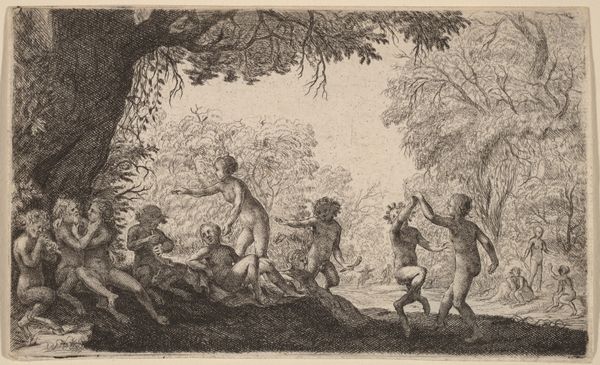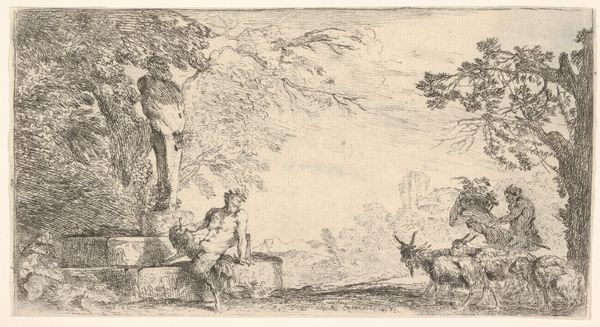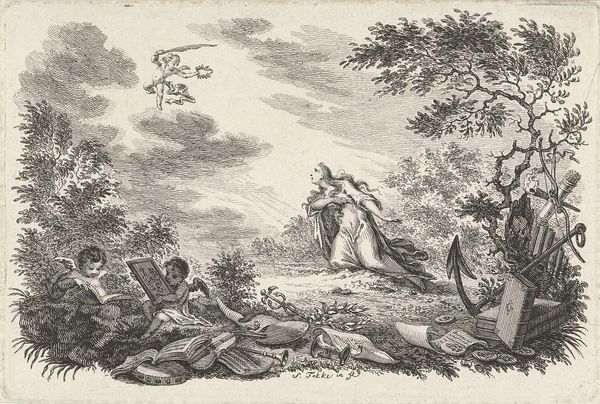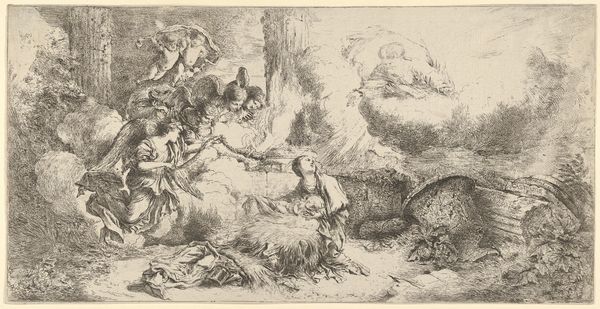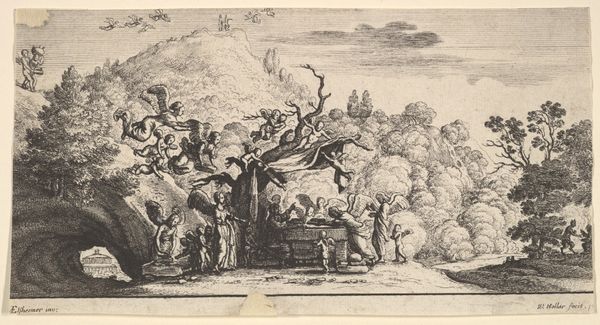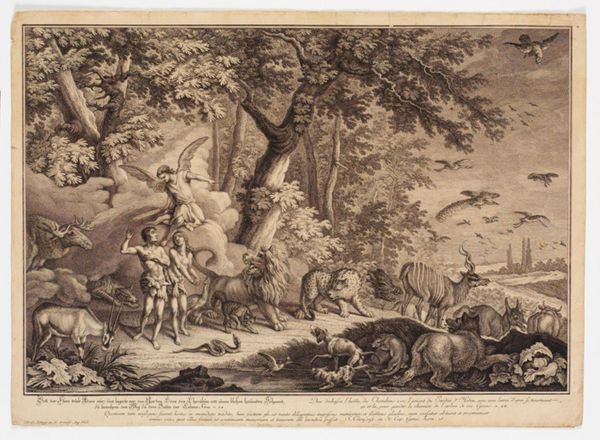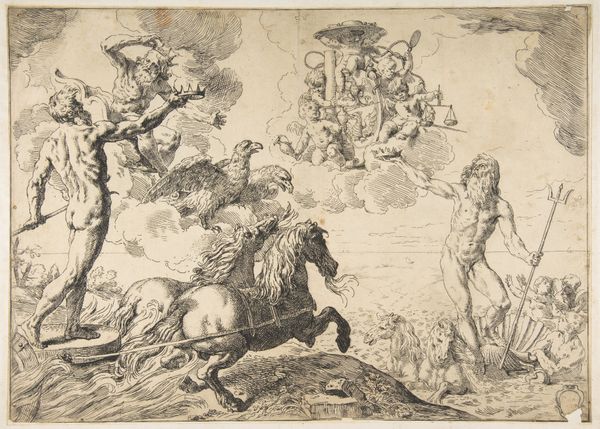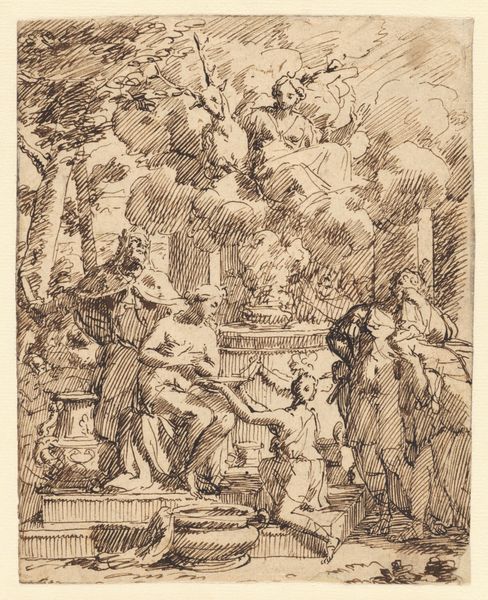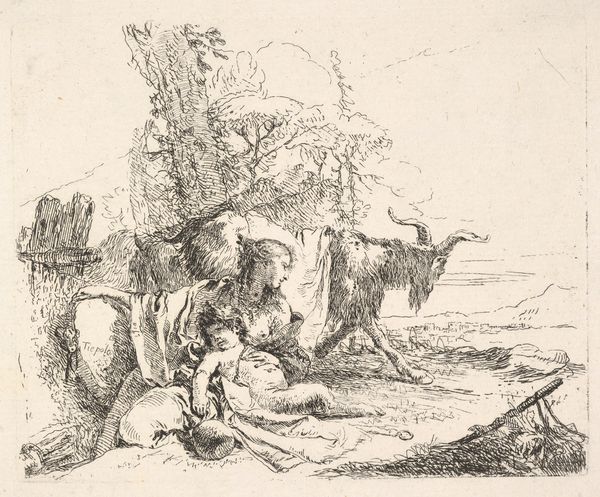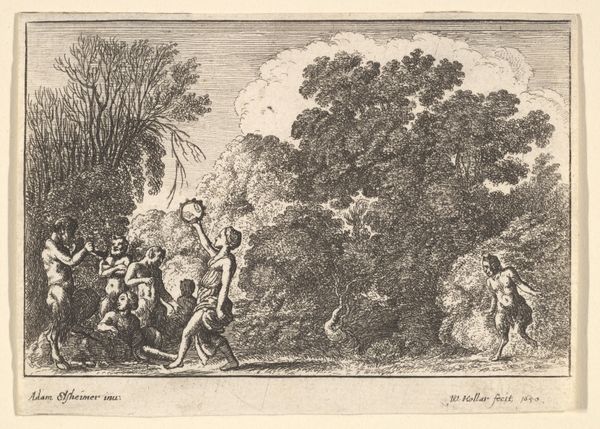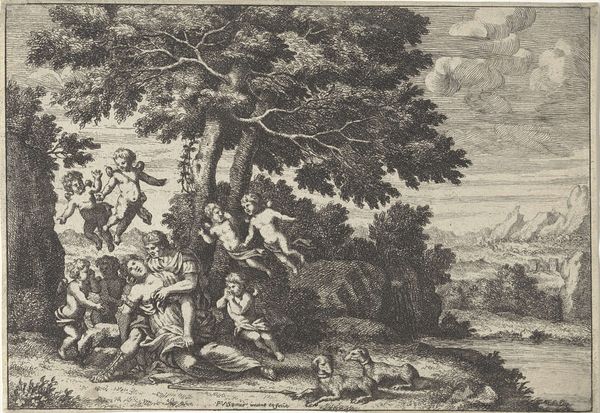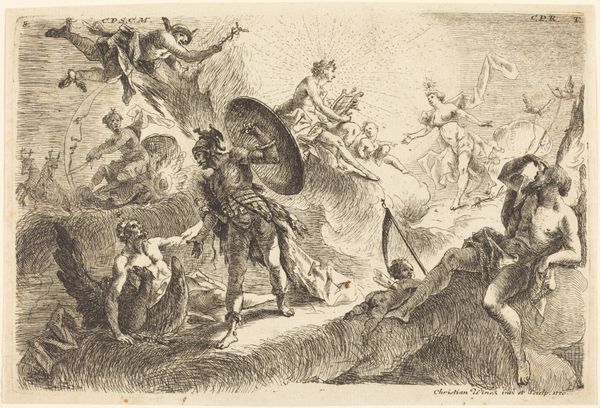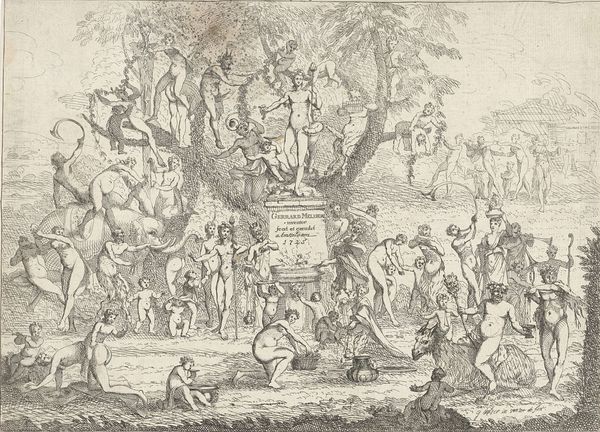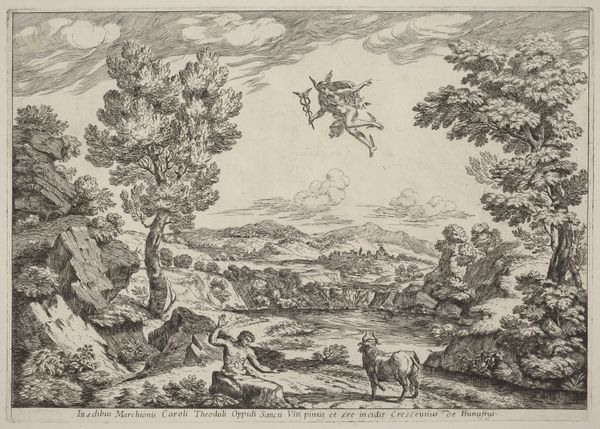
print, engraving
#
allegory
#
baroque
# print
#
landscape
#
figuration
#
history-painting
#
engraving
Dimensions: height 195 mm, width 275 mm
Copyright: Rijks Museum: Open Domain
This print, made by Gerard Melder, probably sometime in the first half of the 18th century, is made from etching, a printmaking technique with a long and rich history. To create this, Melder would have coated a metal plate with a waxy, acid-resistant substance, and then drawn his composition into it with a sharp needle. Acid would then be applied, biting into the metal wherever it was exposed. After the plate was cleaned, ink would be rubbed into the etched lines, and the image transferred to paper in a press. Notice how the etched lines vary in thickness and depth; this suggests the length of time the plate was exposed to the acid, influencing the image’s tonal range, and ultimately, its atmosphere. The entire process, from conception to the final print, reveals the hand of the artist. This kind of labor-intensive process was typical of printmaking, and it's important to remember that the result is not simply an image, but the product of skilled work.
Comments
No comments
Be the first to comment and join the conversation on the ultimate creative platform.
